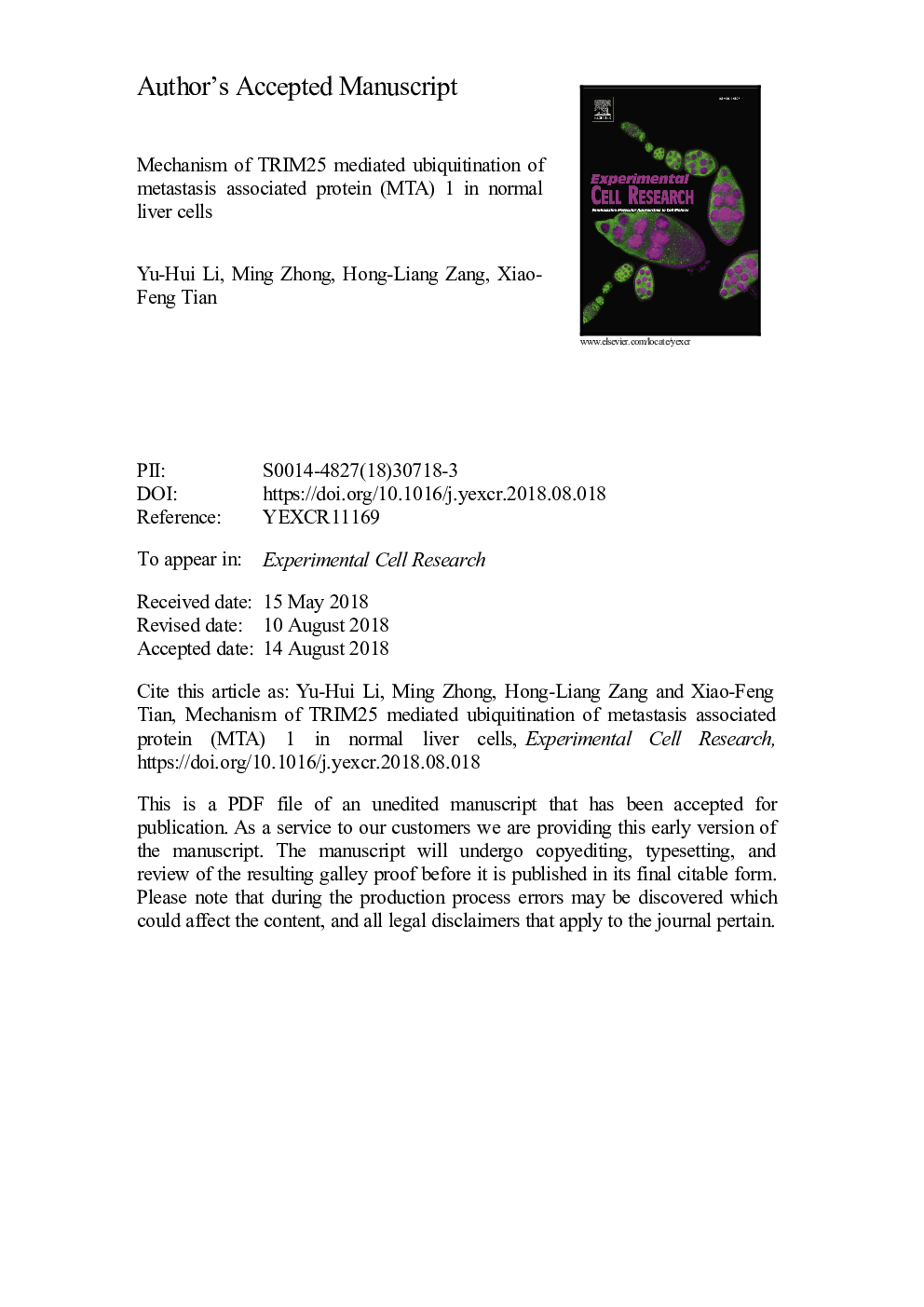| Article ID | Journal | Published Year | Pages | File Type |
|---|---|---|---|---|
| 8962174 | Experimental Cell Research | 2018 | 21 Pages |
Abstract
Ninety percent of all cancer related deaths happen due to metastatic progression. One important protein facilitating metastatic progression in hepatocellular carcinoma (HCC) is the metastasis associated 1 protein (MTA-1). We have earlier shown that in the context of HCC and normal liver cell lines, HuH6 and THLE-2, respectively. MTA-1 protein is actively stabilized in HCC cell lines and actively degraded in normal liver cells. We had also shown that TRIM25 is the E3 ligase that interacts with and degrades MTA-1 protein in normal liver cells. However, the exact mechanism by which TRIM25 degrades MTA-1 protein has still not been elucidated. In the study, we used both in situ prediction algorithms and mass spectrometry based post-translational modification analysis to map the lysine residues in MTA-1 that are polyubiquitinated. Whereas UbPred algorithm revealed a combination of medium and low confidence sites, it revealed only one high confidence lysine (K98) residue. The hCKSAAP_UbSite algorithm also predicted K98 site. Mass spectrometry analysis also showed that K98 has ubiquitin modification. Immunofluorescence analysis showed that in normal liver cell line, THLE-2, which has high expression of TRIM25, ectopically expressed FLAG-tagged wild-type MTA-1 was actively degraded, but the K98R mutant MTA-1 was not. In vitro ubiquitination assay using recombinant wild-type and K98R mutant MTA-1 confirmed that MTA-1 is poly-ubiquitinated at K98 residue by TRIM25. The K98R mutant had a longer half-life than wild-type MTA-1 protein in an in vitro protein stability assay. We establish that TRIM25 ubiquitinates MTA-1 at lysine 98 and degrades it normal liver cells.
Keywords
Related Topics
Life Sciences
Biochemistry, Genetics and Molecular Biology
Cancer Research
Authors
Yu-Hui Li, Ming Zhong, Hong-Liang Zang, Xiao-Feng Tian,
